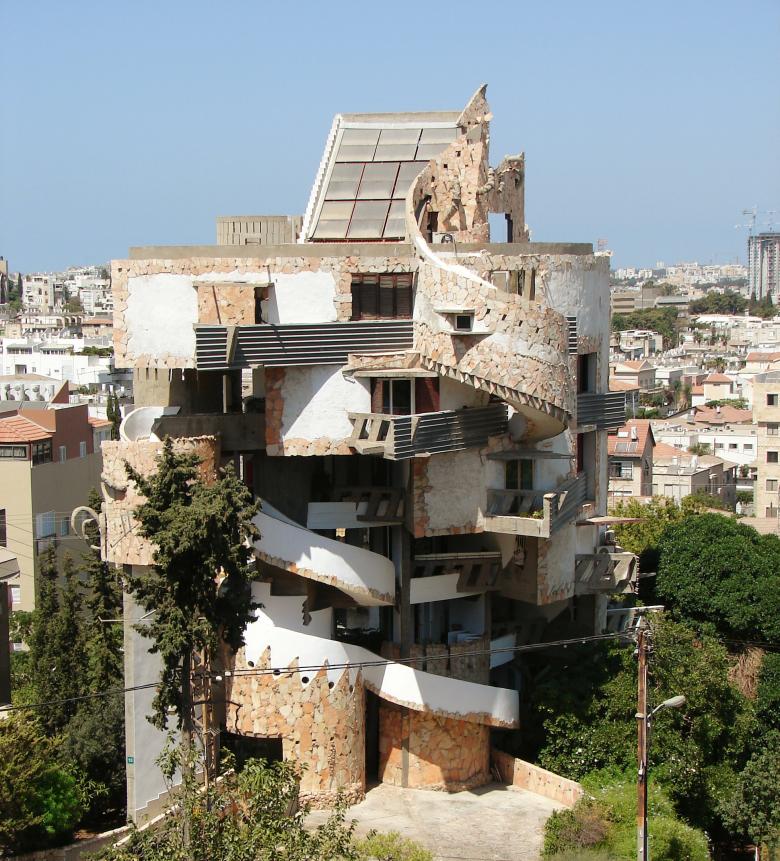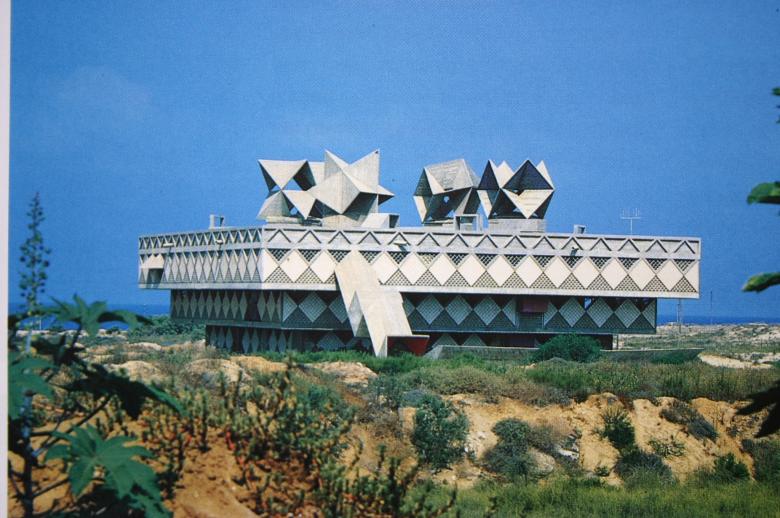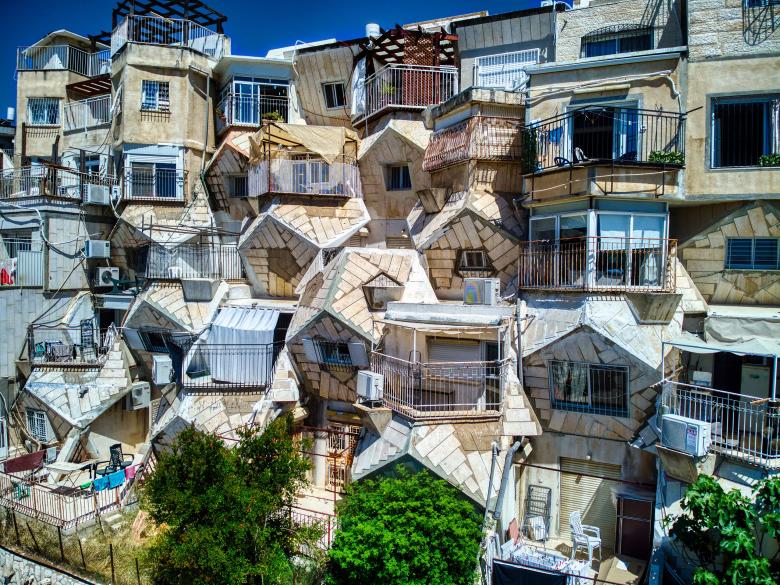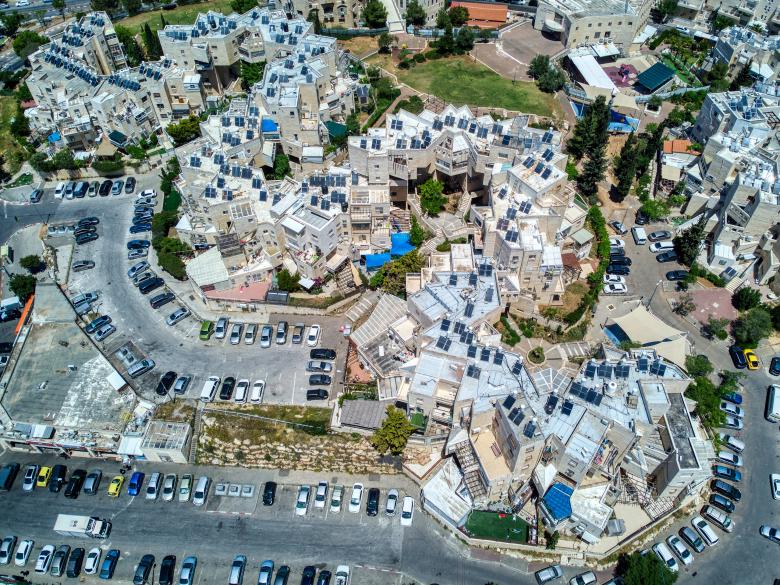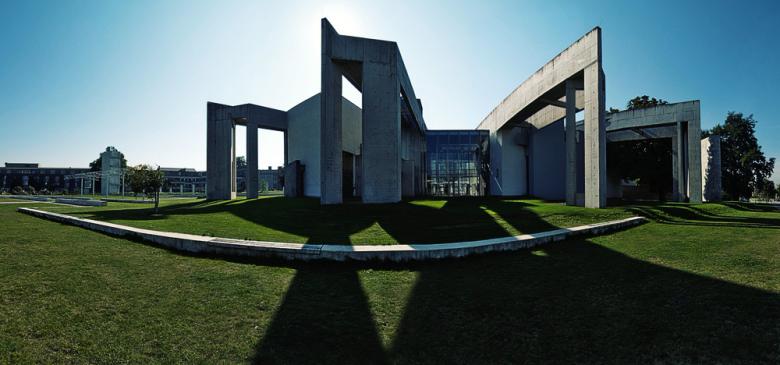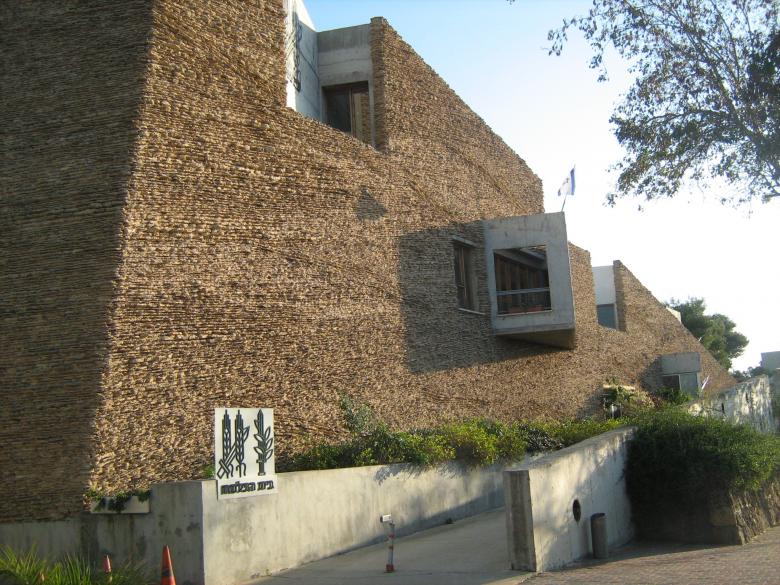Zvi Hecker, 1931–2023
John Hill
27. september 2023
Spiral Apartment House, Ramat Gan, Israel, 1989 (Photo: Aviad2001/Wikimedia Commons)
Zvi Hecker, the “Bad Boy of Israeli Architecture” (according to Haaretz, at least) who was born in Poland, immigrated to Israel in 1950, and moved to Germany in 1991, died at his home in Berlin on September 24, 2023, at the age of 92.
Zvi Hecker was born as Tadeusz Hecker in Kraków, Poland, on May 31, 1931. After beginning his architectural studies in Poland, he immigrated to Israel in 1950 and enrolled at the Technion - Israel Institute of Technology, the only recognized architecture school in the country at the time. He graduated in 1955, studied painting for two years, and then enrolled in the required military service. Some notable early buildings after starting to practice in 1959 were done with his former professor Alfred Neumann and classmate Eldar Sharon. Projects like the Town Hall in Bat Yam (1963), a three-story inverted zigurrat, and the Synagogue in the Negev Desert (1969), a truncated octahedron made up of multiple polyhedral units, exhibited the modular “space packing” theory that was introduced at the Technion.
Town Hall, Bat Yam, Israel, 1962 (Alfred Neumann, Zvi Hecker, and Eldar Sharon) (Photo: Eldar Sharon/Wikimedia Commons)
Ramot Housing, Jerusalem, 1975 (phase 1) (Photo: Hagai Agmon-Snir/Wikimedia Commons)
In 1972, Hecker was commissioned by the Israeli Ministry of Housing for a project in Jerusalem's Ramot quarter, housing for an orthodox Jewish community. He designed 720 apartments that were realized in multiple stages, the first two with specially designed prefabricated elements, the last with conventional construction; the whole was completed by 1985. Ramot Housing's early phases, with their crystalline forms. prefab construction, and provision of outdoor spaces around “fingers,” echoed other housing developments at the time, including Moshe Safdie's Habitat 67 in Montreal and Piet Blom's Cube Houses in Rotterdam.
Ramot Housing, Jerusalem, 1985 (phase 3) (Photo: Hagai Agmon-Snir/Wikimedia Commons)
The Jewish Cultural Centre, Duisburg, Germany, 2000 (Photo via Wikimedia Commons)
Hecker moved to Berlin in 1991. primarily to work out the competition-winning design of the Heinz-Galinski School, a private day school under the auspices of the Jewish Community of Berlin. The striking, spiraling building was designed “in a form of a flower, as a gift to the children of Berlin,” per Hecker's website. Other projects realized in Germany around the same time include the Jewish Cultural Centre in Duisburg and the "Page" Memorial for the Lindenstraße Synagogue Berlin. The latter, done in collaboration with artist Micha Ullman and architect Eyal Weizman, is a minimal, poetic memorial: a courtyard with concrete benches in the same location as the benches of the synagogue that was destroyed on the site during Kristallnacht.
Palmach Museum of History, Tel Aviv, 1999 (Photo: Ori~/Wikimedia Commons)
Also completed in the decade after his move to Berlin was the Palmach Museum of History in Tel Aviv, done with architect Rafi Segal. The project illustrates Hecker's sensitive approach to landscape as a source of inspiration: “Architecturally the Palmach History Museum is not a building, in the conventional sense, but rather a sequence of retaining walls, wrapped around a central courtyard and its existing eucalyptus and pine trees,” per Segal's website, which continues: “To preserve the natural character of the site, much of the museum space has been designed underground. The plan of the building reflects the form of the site, as the elevation mirrors the terraced character of the landscape.”
Zvi Hecker was a visiting professor at numerous universities in the United States, Canada, and Austria. He participated in numerous Venice Architecture Biennales and exhibited widely, as recently as this year, with Zvi Hecker: Entwürfe für die Berliner Mitte at Mitte Museum. He received the German Critic Prize for architecture in 1996 and in 1999 the Rechter Prize for Architecture in 1999. He was an Honorary Fellow of the American Institute of Architects (AIA) and a recipient of the "Merentibus" Medal from the Scientific Council of Krakow Polytechnic.
Gerelateerde artikelen
-
Zvi Hecker, 1931–2023
on 27-09-2023
